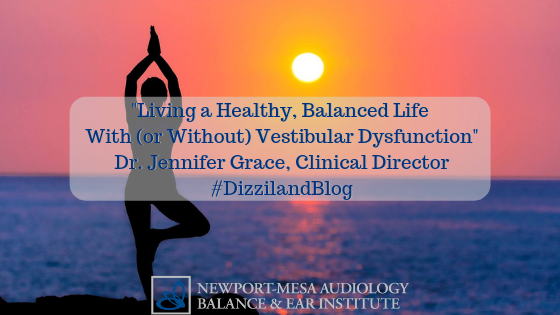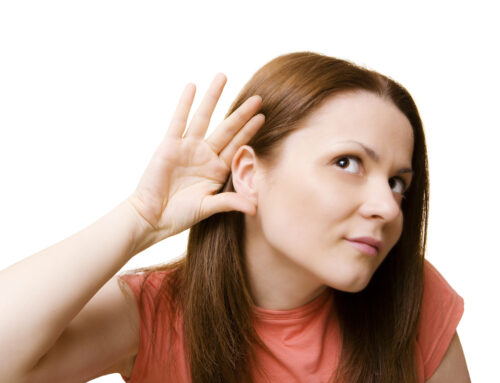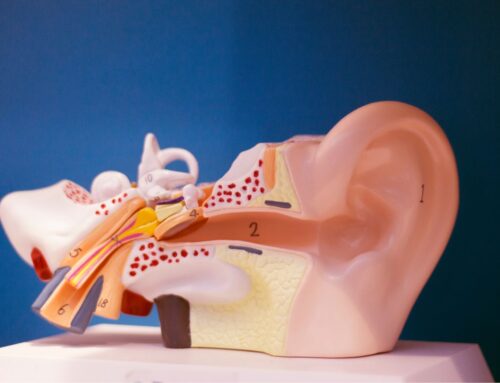Five Tips for Balanced Living from a Vestibular Audiologist
Dr. Jennifer Grace, Clinical Director

If you have a vestibular disorder, causing you dizziness, vertigo, or imbalance, taking good care of yourself and your overall health is of utmost importance. It certainly can leave you feeling run down and discouraged. It goes without saying that you should always consult with your primary care physician and other relevant specialists (ENT, neurologist, cardiologist, vestibular audiologist) to get a complete diagnosis and treatment plan.
We conduct all diagnosis and treatment of vestibular disorder at our Institute and also offer proprietary remote treatment with VR goggles for patients who live out of the area. Whether you’re undergoing Advanced Vestibular Treatment™ (AVT) or not experiencing any dizziness at all, these following five wellness tips will help keep you feeling stable and balanced. They are commonly-shared advice, but well worth the reminder.
- Rest
Getting enough sleep each night has a direct impact on your mood and health. Aim to get eight hours of sleep nightly. You can set yourself up for success to achieve maximize rest by turning off the TV and electronics, keep the room dark and play soothing music. Pandora Radio has stations specifically for facilitating sleep, including ones with sounds like ocean waves, nature, rain, as well as instrumental, white noise and binaural beats. In Pandora, you can even set a sleep timer option that makes it easier to fall asleep to relaxing music without having to worry about it playing all night. - Eat Right
Take good care of your health by eating nutrient-rich whole foods and balanced meals. Refer to our blog post on ‘the vestibular diet’ to know which foods to eat plenty of and those to avoid. These guidelines help prevent vestibular migraines, as well as helping to manage some other vestibular disorders. Basically, you will want to eat a mix of fruits, vegetables, whole grains and lean proteins, while avoiding sodium, MSG, nitrates, caffeine and other triggering foods. You can keep track of your food and calories in an app like My Fitness Pal or Samsung Health, or even with basic paper and pen. - Exercise
There are many options for exercise for strengthening your muscles and cardiovascular health, as well as boosting your energy. Exercise can be as simple as walking (even in place) and should be relatively enjoyable so you look forward to doing it without feeling discouraged. Carve out as little as 15 minutes a day for your preferred activity – yoga, stretching, calisthenics, weight lifting, walking, biking or even dancing. The key is to just keep moving. There are plenty of You Tube videos that can lead you in a series of exercises of your interest. Tai Chi, yoga and Pilates are especially good for increasing core strength and balance. In addition, our doctors of audiology can recommend some specific routines for you that can benefit your vestibular disorder. - Meditate
You may have heard a lot of people talking about meditation and its profound benefits, but you might doubt its usefulness for you. Research continues to show how meditation calms the mind and improves people’s moods and outlook. It’s worth considering how to fit meditating into your daily life. Just as in exercising, work in small increments of time to get yourself accustomed to the practice. Don’t be too critical of yourself for ‘not getting it right’. It’s all about focusing on your breathing, calming your mind and pausing the constant rush of thoughts and mental activity for a moment. There are plenty of You Tube videos and apps like Insight Timer and Head Space that can lead you through guided meditations specific to your interests and time availability. - Foster Community
It’s been shown that those who have more social connections and support have greater sense of wellbeing and contentment. Community and social support help people cope and overcome life stressors more easily and fight off depression. Vestibular disorders have a way of hijacking your life completely, so having a supportive network of family and friends is key to helping you get through the difficult times. It’s important that you don’t isolate yourself from others and reach out to others when you find yourself stressed, anxious or depressed.Many patients benefit from finding online support on websites, blogs and forums. The Vestibular Disorders Association (VEDA) website has a wealth of resources for those with vestibular dysfunction, as well as our own Dizziland Blog. Here is a wonderful list compiled by VEDA of DO’S and DON’TS for interacting with friends and family who have vestibular disorders. It would be very helpful to gently to remind people of these guidelines when they ask how they can help. This is a great reference as you want people to show their encouragement and support, without unknowingly making it worse with their lack of knowledge and understanding.
Also, there are so many fellow sufferers to connect with on social media, who are enthusiastic about sharing their wisdom and encouragement with others. Find them by looking up key hashtags related to your specific condition, following them and liking and commenting on their posts. Instagram is a wonderful platform for this. Ask a savvy friend for help if you aren’t familiar or comfortable with social media. Connect with us and find support on our social media channels: Facebook, Instagram, Twitter, You Tube.
If you want to meet new people in real life and foster friendships with like-minded people with similar interests, look up MeetUp.com for local meet up groups in your area. If you can’t find a group that suits you, you can create a new one that you would lead.
In addition to your immediate essential support system, your doctor of audiology at Newport-Mesa Audiology Balance & Ear Institute will be a solid advocate for you, encouraging you each step of the way through our diagnosis and treatment process. From our scheduling team to our front office staff, everyone you encounter will guide you through the experience.
We hope these five wellness tips help give you some inspiration to keep your health on track while you’re struggling with a vestibular disorder, as well as for the remainder of your life. A healthy lifestyle and positive mental outlook are essential for an overall sense of wellbeing. If you have any additional tips that have helped you, please share them with us in the comments below.






Leave A Comment